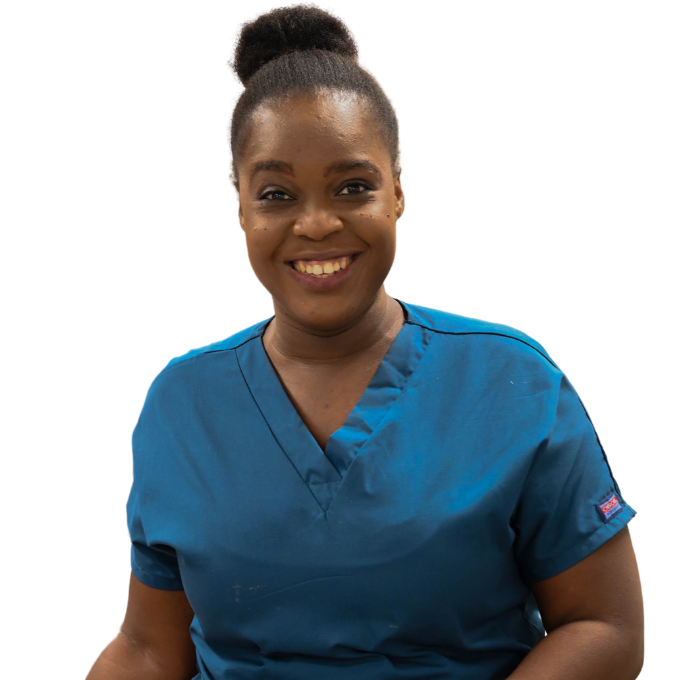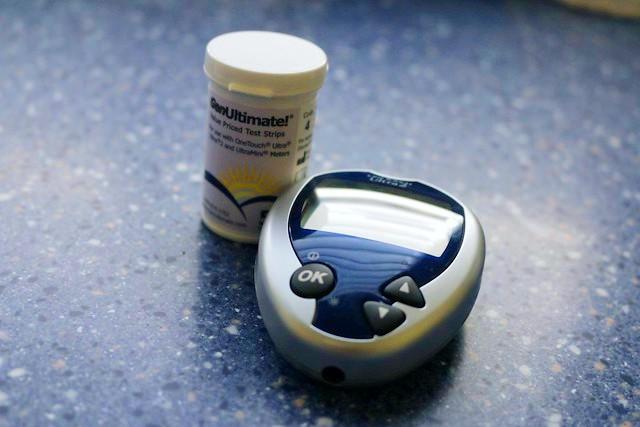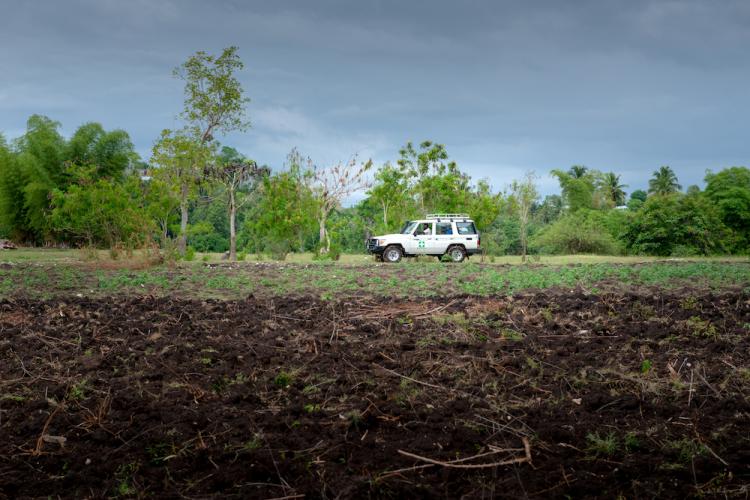“We value making patients feel welcome.”
Your donation will help Nurse Laguerre provide the highest-quality care to every patient in need.


“When I first noticed my wounds, I did not know it was diabetes that could do this.”
Yvan was diagnosed with diabetes two or three years ago, he estimates. He had been receiving care at facilities near his home in Les Cayes, but it was tough to find insulin. He told us, “I saw a doctor who had come from abroad, and the doctor gave me insulin. He showed me how I could administer the shots to myself. He gave me the medication to take home and I administered it to myself for some time. However, once the medication ran out I was unable to find it again.”
I pray that the hospital can continue to give services like I received to the many patients that come to here each day.
Yvan
The odds are stacked against most diabetics in Haiti. At a minimum, managing diabetes requires routine doctors’ visits, regular access to a glucometer and test stips to manage blood sugar levels, and access to healthful foods and lifesaving insulin. But the vast majority of Haitians cannot afford to see a doctor even once, let alone regularly.
Insulin is also a tricky drug to transport and store in a country like Haiti. Although the medicine can be stored outside of a refrigerator for four to six weeks if temperatures are below about 77 degrees Fahrenheit, temperatures in Haiti almost always exceed this threshold.
Refrigeration is hard to come by as well, especially in the most rural areas. And finally, nearly all care facilities rely on donated medications and supplies, which arrive randomly, and in unpredictable amounts. In fact, it’s usually far from a gift when a hospital receives a donation of glucometers and test strips because all too often, the donated materials are different brands. This shouldn’t seem like a big deal if not for the fact that each brand of glucometer has its own proprietary strips. If different brands of glucometers and strips are donated, both are effectively useless and unusable. More often than not, supplies simply run out for months on end.

These barriers to care have dire consequences for patients. For many diabetics in Haiti, the disease can be a death sentence. And for some patients, like Yvan, unmanaged diabetes ravages the body. Yvan’s troubles began in his legs. He told us, “I was at home taking a bath and I noticed a small wound on my leg. After a couple of days, I noticed that the wound was not healing, but was growing bigger. I went back to the clinic near my home and they transferred me to St. Boniface Hospital to receive care.”
By now, Yvan had severe open wounds over his right thigh and calf. Driving over the rough roads caused him agonizing pain as the car jostled him back and forth. Political protests led to roadblocks throughout the area, stretching what should have been a two-hour drive into an hours-long ordeal. Finally, Yvan had to switch from car to motorcycle to make the last leg of the journey up the rocky, unpaved road to the hospital. The pain was unimaginable.
But relief was soon to come. Once at SBH, Yvan met with Dr. Turenne, who performed his surgery. Dr. Turenne was able to treat his wounds by removing the dead tissue and providing Yvan with medications to help him heal. He also helped Yvan understand how unmanaged diabetes causes wounds such as his, and how he can keep himself healthy once at home. In total, it took an entire month of rest and careful monitoring for Yvan to become healthy enough to return to Les Cayes. He continues to receive follow up care from our team to keep his diabetes under control and prevent future complications from arising again. He continues to receive follow-up care and insulin from SBH to keep his diabetes under control and prevent complications from arising again.
“I was in a lot of pain and I was very sick, and now I am no longer in pain. I am very happy to be feeling this way again,” Yvan told us. “I want to say thank you to the nursing staff at the hospital as well, as well as the clinicians who have supported me and helped me to heal during my time St. Boniface. I want to say thank you to God, all the doctors, and all the people that have helped me here at St. Boniface. I pray that the hospital can continue to give services like I received to the many patients that come to here each day.”
Your donation will help Nurse Laguerre provide the highest-quality care to every patient in need.
